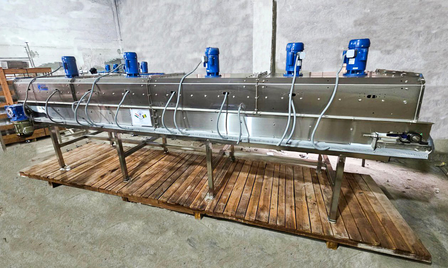
New Delhi, Jan 24 (IANS) There is a pressing demand for the development of new products in the pharmaceutical pipeline to effectively combat deadly fungal infections, according to a report on Wednesday.
The number of global fatalities due to fungal diseases has seen a significant increase over the past decade. This rising trend underscores the urgent need for heightened awareness and improved diagnostic methods, revealed the report by GlobalData, a data and analytics company.
A recent study carried out by the Manchester Fungal infection Group at the University of Manchester highlights the disease burden of two pathogens in particular, Aspergillus and Candida, which are responsible for millions of deaths each year.
“These fungi coincide with the World Health Organisation fungal priority pathogens list which categorizes Candida auris, Candida albicans, and Aspergillus fumigatus as critical priority pathogens,” said Stephanie Kurdach, Infectious Disease Analyst at GlobalData, in a statement.
“This highlights the unmet need surrounding proper diagnosis and treatment of these deadly fungal infections,” Kurdach added.
Fungal infections are particularly opportunistic in individuals with asthma, tuberculosis, lung cancer, leukemia, AIDS, those who have had an organ transplant, and those in intensive care. Misdiagnoses or untimely diagnoses of fungal infections contribute to millions of deaths each year, fuelled by a lack of awareness from healthcare professionals as well as the absence of widespread diagnostic testing.
For example, the currently available tests which rely on fungal cultures can only identify about one-third of people who have a fungal infection, highlighting the unmet need for better diagnostics.
“The major obstacles in the disease management of fungal infections include insufficient awareness, inadequate diagnostic measures, and lack of effective antifungal drugs. This is then compounded by antifungal resistance, which is a growing concern due, in part, to the use of fungicides in the environment,” Kurdach said.
This is particularly the case for Aspergillus infections, she noted.
“As Aspergillus become exposed to azole fungicides in the environment, resistant microbes can survive, multiply, and infect vulnerable individuals. Antifungal resistant infections are difficult to treat and can be life-threatening,” Kurdach added.
According to GlobalData, there are 18 products in active clinical development against Candida infections and 14 products in active clinical development against Aspergillus infections.
Of these 32 products, one is a prophylactic vaccine – LimmaTech Biologics’ Candi-5V. Candi-5V is a pentavalent biconjugate vaccine candidate in Phase I/II testing (NCT06190509) for woman with recurrent vulvovaginal candidiasis, an infection typically caused by Candida albicans.
Currently, there are no approved vaccines on the market for any fungal infections.
“Considering the high level of unmet need surrounding fungal infections, the product development pipeline displays limited novel therapies. This should remain a top priority to decrease global deaths from fungal disease, in addition to increased awareness and widespread diagnostic tools,” Kurdach said.
–IANS
rvt/vd




